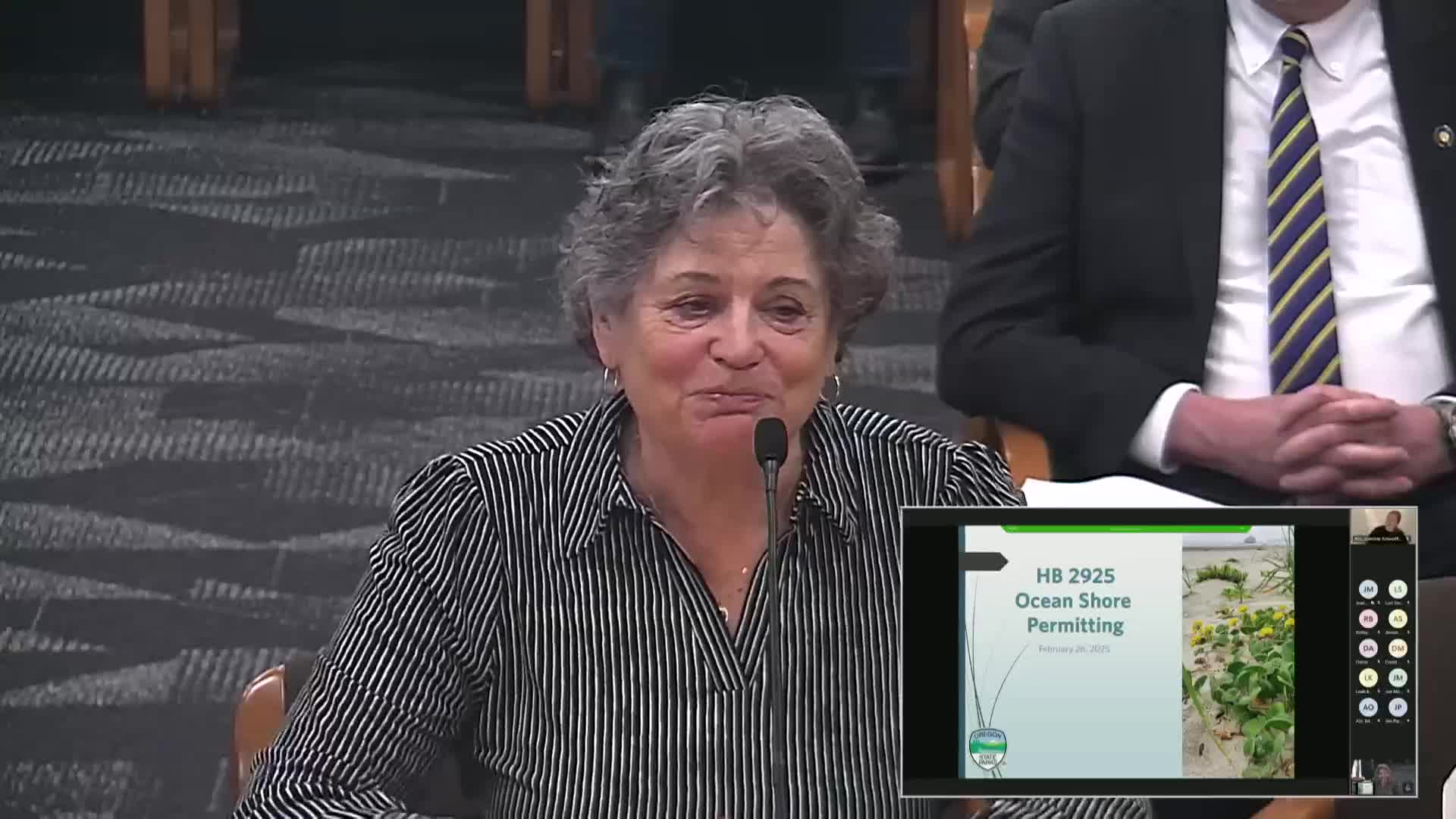Oregon Parks seeks statutory changes to ocean-shore permitting timelines, fees and permit types

Summary
Oregon Parks and Recreation Department asked the committee to approve House Bill 2925 to allow a tiered permitting approach, extend review timelines to match Department of State Lands practice, and authorize rulemaking to set fees so program costs can be recovered.
Co-Chair Helm opened the public hearing on House Bill 2925. Vicki Berger, a commissioner on the Oregon Parks Commission, and Matt Rippey, deputy director for Field and Community Services at the Oregon Parks and Recreation Department (OPRD), described shortcomings in the current ocean-shore permitting regime and presented statutory changes the bill would make.
Berger said Oregon's ocean shore (the area from the statutory vegetation line seaward to extreme low tide) is a "tiny, fragile strip of land" that faces heavy public use, climate impacts and increasing management complexity. Rippey outlined three specific problems HB 2925 would address: (1) the current single, one-size-fits-all permit process that treats minor and highly complex projects the same; (2) an inflexible 60-day statutory review deadline that includes a 30-day public review window and sometimes forces denials when unresolved issues remain; and (3) a flat, outdated $400 base fee that does not reflect program costs.
Rippey said HB 2925 would authorize a general authorization for lower-impact, routine activities (e.g., dune or vegetation management) and allow OPRD to adopt a multi-tier fee schedule by rule after a public advisory process; the bill would also extend the statutory review timeline to match the Department of State Lands model (allowing up to 120 or 210 days as appropriate) so OPRD can extend review in complex cases and avoid premature denials.
Representative McLean and other committee members asked about sunset or review provisions for fee authority; Berger said she would prefer statutory language requiring periodic public review rather than a strict sunset, to ensure fees keep pace with program costs and avoid repeated legislative returns. Committee members said they expect OPRD to use a rule-making process and stakeholder advisory committee to set fees and implement the general authorization approach.
No opposition testimony was recorded in the hearing record presented to the committee. The committee closed the public hearing and did not take a vote during this session.

